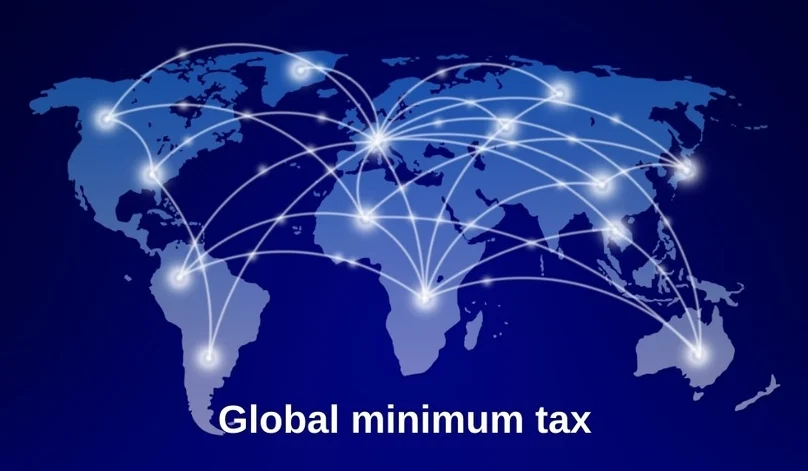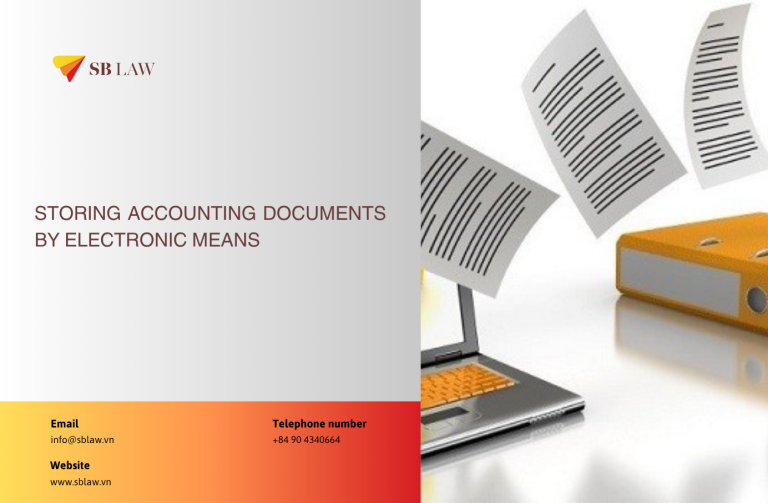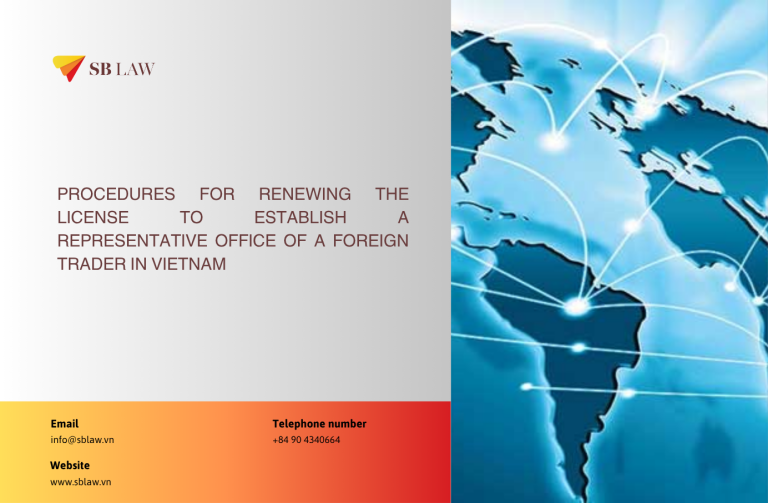On November 29, the National Assembly officially passed the Resolution on Global Minimum Tax (GMT). This Resolution will take effect from January 1, 2024, applicable from the financial year 2024.
The Global Minimum Tax is a tax proposed by the Organization for Economic Cooperation and Development (OECD), requiring corporations and multinational enterprises with over €750 million (US$800 million) in annual revenue to pay a minimum tax rate of 15 percent on their profits, in any countries.
In the draft Proposal for the development of a Resolution of the National Assembly on the application of additional corporate income tax according to the regulations on Preventing Global Tax Base Erosion (“GloBE”), the Ministry of Finance proposed two specific enforcement policies:
(i) Regulations on qualified domestic minimum additional corporate income tax (“QDMTT”): Applicable to constituent units or collections of constituent units of the above mentioned multinational corporation, which have production and business activities in Vietnam during the financial year.
(ii) Regulations on minimum taxable income (“IIR”): Applicable to the ultimate holding company, partially owned holding company, intermediate holding company in Vietnam that is a constituent unit of the above mentioned multinational corporation, directly or indirectly holding ownership rights. The constituent entity is subject to low foreign tax rates under the Global Minimum Tax Regulations at any time during the financial year.

Obligation to declare and pay taxes
Enterprises covered by the Resolution must submit a GloBE information declaration form, a supplementary corporate income tax declaration, and an explanation of differences due to differences among financial accounting standards.
Deadlines for declaring and paying taxes are as follows:
- For additional tax obligations according to QDMTT principles: 12 months after the end of the financial year.
- For additional tax liability under IIR: 18 months after the end of the financial year for the first financial year within the scope of application and 15 months after the end of the financial year for subsequent financial years.
The tax payment deadline is the same as the declaration deadline.
Documents declared to taxpayers include:
- Information declaration according to the Global Minimum Tax Regulations
- Additional corporate income tax declaration accompanied by an explanation of differences due to differences between financial accounting standards.
Reduce liability during the transition period
During the transition period, additional taxes under QDMTT and/or IIR regulations in the country for the financial year will be considered zero if one of the following cases is met:
- During the financial year, the multinational corporation (“MNE”) has a standard cross-country profit report with total revenue below EUR 10 million and pre-tax profit (or loss) below EUR 1 million in that country.
- The multinational corporation has a simple effective tax rate in that country equal to or greater than the conversion rate for the financial year. The conversion rate is 15% for financial years starting in 2023 and 2024; 16% for financial year starting 2025; and 17% for the financial year starting in 2026.
- The profit (or loss) before income tax of the multinational corporation in that country is equal to or less than the income deduction associated with tangible assets and labour calculated under the Global Minimum Tax Regulations for member companies residing in that country according to cross-country profit reporting.
In addition, during the transition period, there will be no administrative sanctions for violations of additional tax declaration. However, the Resolution does not provide guidance on whether late payment interest should be applied or not.
Therefore applying the GMT will bring positive effects to Vietnam in the current context. Firstly, reinforce Vietnam's reputation in the international community as a law-abiding, highly responsible and dependable member. Therefore, it meets the current international integration goals in Vietnam, including compliance with global standards and cooperation with other countries to combat common difficulties. Secondly, Vietnam can stand to gain a considerable amount of state budget revenue from taxing previously untaxed profits of MNEs. The Ministry of Finance has estimated that the GMT implementation would generate an additional VND14,600 billion (US$629 million) to Vietnam’s state budget in 2024. Thirdly, according to the General Department of Taxation, there are more than 120 foreign corporations investing directly in Vietnam that will be affected if the global minimum tax policy is applied from 2024. This helps reduce tax competition among the countries and prevent enterprises around the world from engaging in tax evasion by shifting profits to low-tax jurisdictions.
However, besides the above benefits, the GMT will negatively affect the ability to attract foreign direct investment (FDI) into Vietnam. This is an important component of Vietnam's economic growth over the past thirty years. Although the GMT only applies to multinational corporations and enterprises with large revenues, small FDI enterprises located in the production and business chains of multinational corporations will also be indirectly affected by the GMT applies. The FDI sector makes up around 20 percent of Vietnam’s GDP and accounted for 74 percent of total export value in 2022. Previously, registered FDI capital in Vietnam reached nearly US$27.72 billion. Manufacturing and processing industries accounted for the majority of this sum, totalling over US$16.8 billion or 60.6 percent of the registered capital.
Vietnam needs an action plan to appropriately respond to the application of global minimum tax. Accordingly, low labour costs, combined with simple supply chain integration, good free trade access and political stability make Vietnam still an attractive choice for many foreign investors, including large corporations such as Samsung, Intel, Panasonic, LEGO… However, Vietnam needs to continue to adjust policies aimed at attracting foreign investment capital in the direction of developing the business investment environment, promoting the implementation of public investment projects to improve infrastructure, socio-economic stratum, focusing on digital transformation and application of modern technology.




